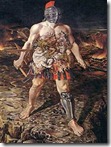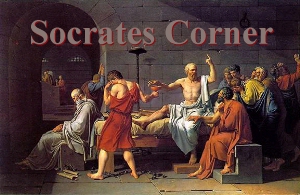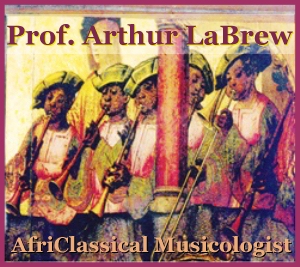MODERNISM’S STAIN ON THE CULTURE
 In writing about what historian David Barton calls “the five malpractices of modern history,” we formerly discussed Deconstructionism, meaning to overturn all the binary oppositions of metaphysics, and Poststructuralism, an idea marked by a rejection of totalizing, essentialist, foundationalist concepts such as the reality of truth or the will of God. A third common attack device by the left against God, history, truth, tradition and American exceptionalism is Modernism, which Barton writes “examines historical events and persons as if they occurred and lived today rather than in the past. It severs history from its context and setting, misrepresenting historical beliefs and events.”
In writing about what historian David Barton calls “the five malpractices of modern history,” we formerly discussed Deconstructionism, meaning to overturn all the binary oppositions of metaphysics, and Poststructuralism, an idea marked by a rejection of totalizing, essentialist, foundationalist concepts such as the reality of truth or the will of God. A third common attack device by the left against God, history, truth, tradition and American exceptionalism is Modernism, which Barton writes “examines historical events and persons as if they occurred and lived today rather than in the past. It severs history from its context and setting, misrepresenting historical beliefs and events.”
Modernism is the idea that human beings as individuals can define themselves through their own intrinsic resources and form their own ideas of existence without help from family, humanity, tradition or God. American modernism, like modernism in general, is a movement of philosophical thought that establishes the power of human beings to make, advance and reshape their environment, with the support of scientific knowledge, technology and theoretical experimentation, and is thus in essence progressive, optimistic and humanistic. For example, Barton writes, “Modernists assume that everything is static – that as it is today, so it was then, but to accurately portray history, each group or individual must be measured not by today’s modes of thinking, customs, and usage but rather by the context of their own times.” In other words, Modernism arrogantly and ignorantly judges history through the eyes of the present.
Modernism evolved from Enlightenment philosophers like Voltaire, Rousseau, Hume, Kant and Berkeley, rejecting all historical reference. David Harvey’s definition of modernism, in his book “The Condition of Postmodernity,” indicates it “can have no respect even for its own past …”; it must embrace a meaning collected and defined “within the maelstrom of change.” This definition of Modernity links the humanist, atheistic ideas of the Enlightenment thinkers together with the individual efforts working “freely and creatively for the pursuit of human emancipation and the enrichment of daily life.” Early modernists married the Enlightenment ideal with the Progressive movement obsession with human perfection through social engineering, socialism and the welfare state; the rupture with truth, realism, history, tradition and religion accompanied the embrace of the “transitory,” the “fleeting” and the “maelstrom of change.” Yet, with the rise of socialism and the golden age of fascist tyrants of the 20th century – Lenin, Stalin, Hitler, Mussolini, Hirohito, Mao, Pol Pot, et al. – these optimistic views were abandoned.
Click here to read the article at World Net Daily
Category: Uncategorized






